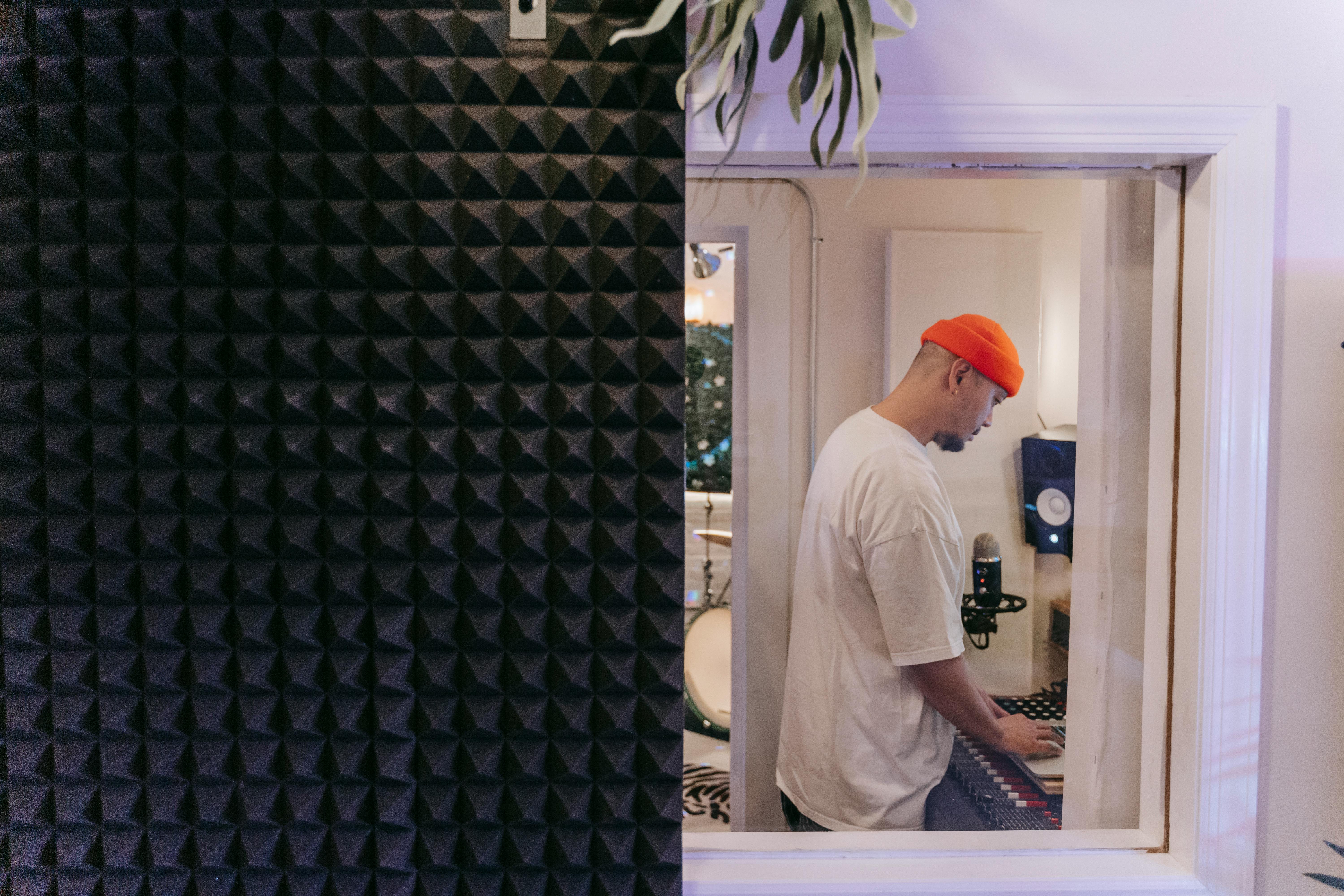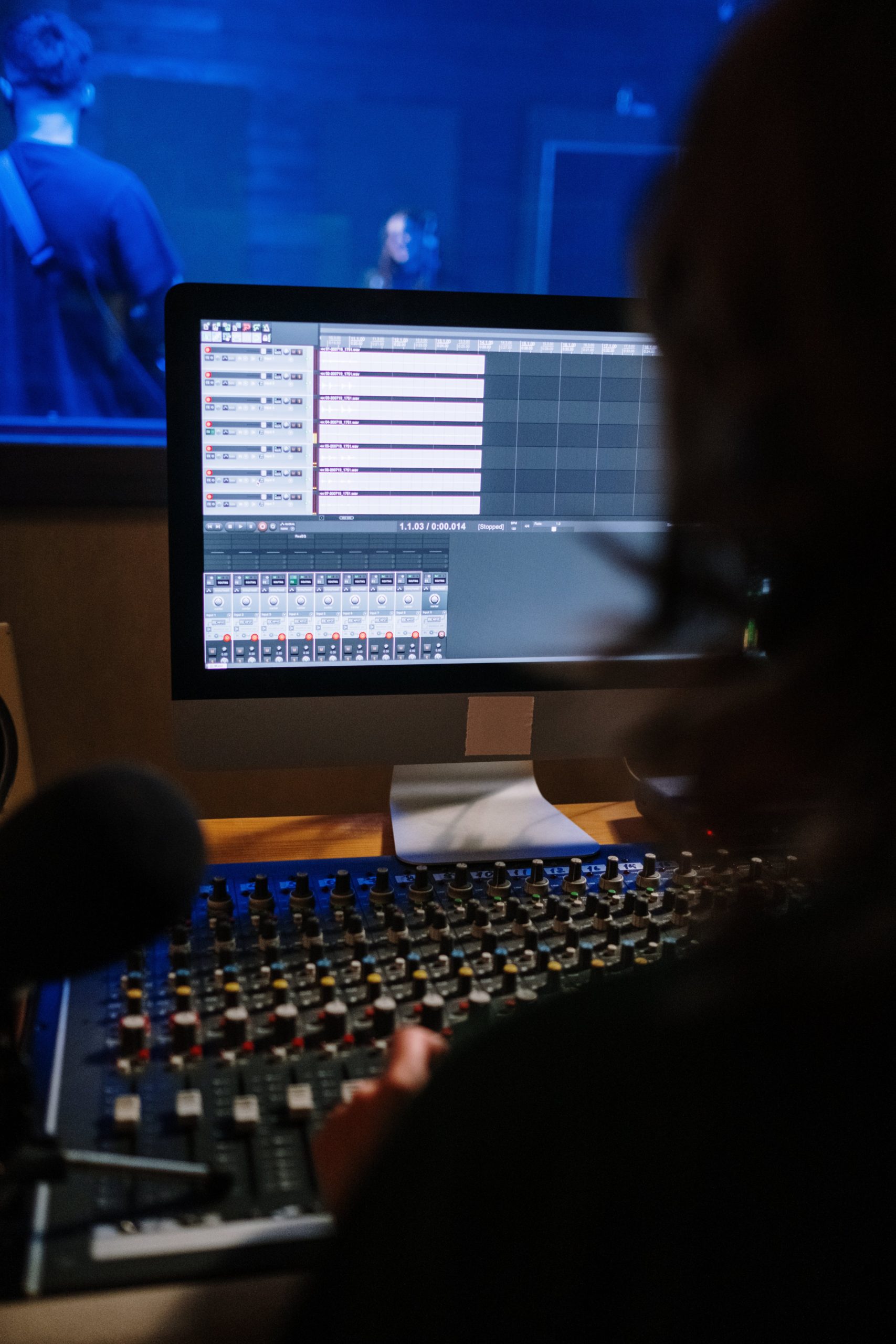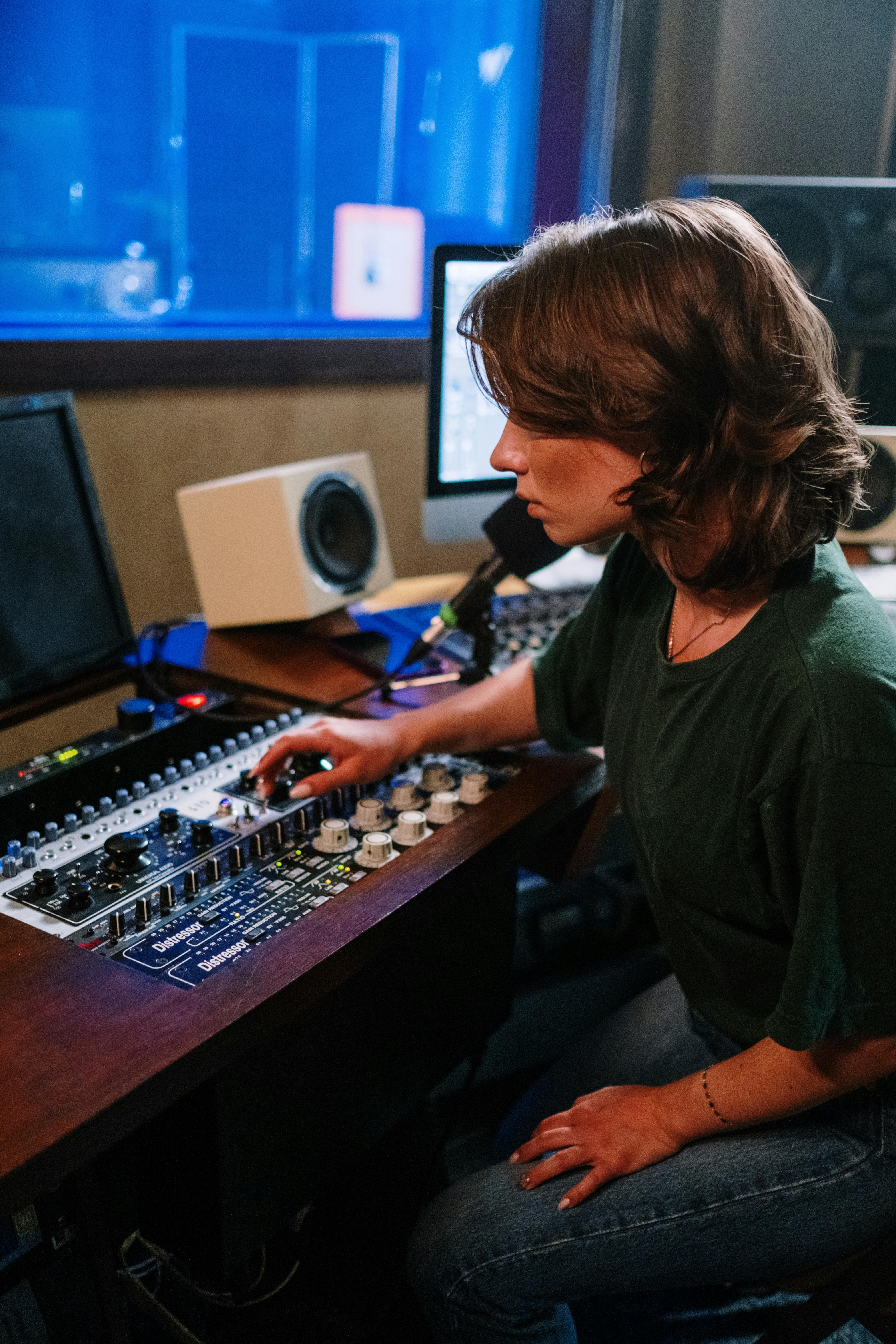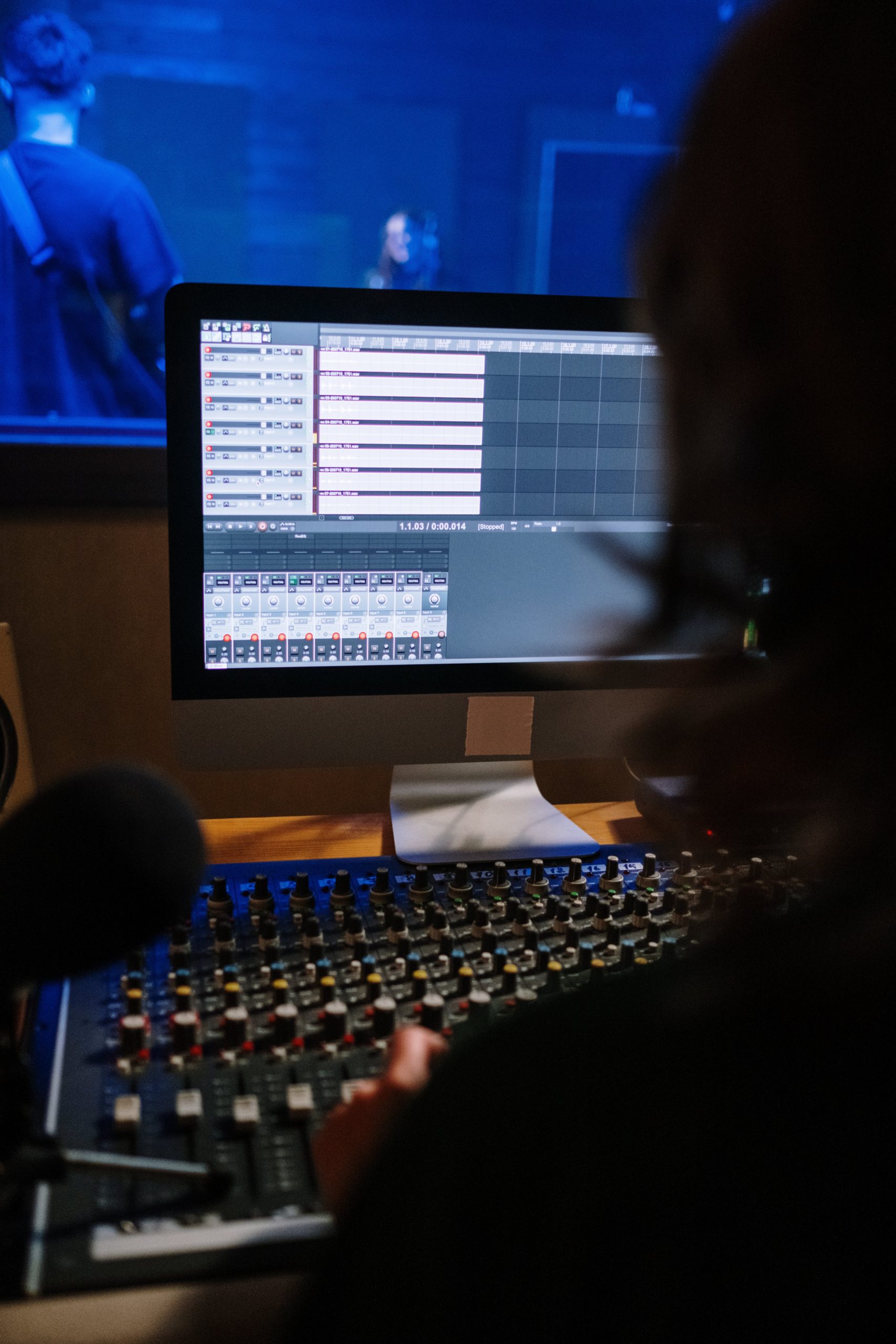If you’re serious about recording high-quality audio, then understanding the importance of soundproofing is crucial. Whether you’re a professional musician, podcaster, or voiceover artist, creating a pristine and undistorted sound is essential for capturing the true essence of your work. Soundproofing not only prevents unwanted noise from seeping into your recordings but also helps to eliminate any echoes or reverberations that can negatively affect the overall clarity and professionalism of your audio. In this article, we will explore the top three reasons why soundproofing is vital in the world of recording, and how it can significantly enhance the quality of your audio productions.

Understanding Soundproofing
Soundproofing is the process of reducing or eliminating the transmission of sound between spaces. Whether you’re recording audio in a professional studio or creating a podcast in your home, understanding soundproofing is essential for achieving high-quality sound. By effectively minimizing unwanted noise and maximizing the clarity of the desired sound, soundproofing plays a crucial role in the success of any recording endeavor.
Defining Soundproofing
Soundproofing refers to the techniques and methods used to control or block sound waves from entering or leaving a space. It aims to create an environment where sound is contained and isolated, preventing it from interfering with the recording process. Soundproofing techniques can include using sound-absorbing materials, installing acoustic panels, sealing gaps and cracks, and creating barriers to block noise.
Principles behind Soundproofing
The principles behind soundproofing involve understanding the behavior of sound waves and how they interact with various surfaces and materials. When sound waves encounter a barrier, they can be absorbed, transmitted, or reflected. Effective soundproofing relies on implementing strategies to minimize the transmission and reflection of sound waves. It requires creating a barrier that is both dense and flexible to ensure maximum insulation.
Materials Used in Soundproofing
Various materials can be used in soundproofing to absorb or block sound waves. Commonly used materials include acoustic foam, mass-loaded vinyl, fiberglass insulation, and soundproof curtains or blankets. Acoustic foam panels are designed to absorb sound waves and reduce echo and reverb. Mass-loaded vinyl is a dense material that helps to block sound waves and reduce noise transmission. Fiberglass insulation is an effective sound absorber, and soundproof curtains or blankets provide an additional layer of insulation.
The Effects of Soundproofing
Soundproofing can have several positive effects on the recording process. By reducing external noise, it allows for a clean and clear recording environment. This is particularly important when recording vocals or delicate instruments that are sensitive to background noise. Soundproofing also helps to prevent sound leakage, ensuring that the recorded sound remains isolated and focused. This can lead to improved audio quality and a more professional and polished final product.
The Role of Soundproofing in Audio Recording
The Recording Environment
Creating an ideal recording environment is crucial for capturing high-quality sound. Soundproofing plays a vital role in establishing a controlled and isolated recording space. By minimizing external noises such as traffic, appliances, or other people, you can create a quiet environment that allows for clear and focused audio recordings. Soundproofing also helps to prevent reverberation or echo, ensuring that the recorded sound is clean and free from unwanted reflections.
Reduction of Unwanted Noise
One of the main reasons for soundproofing in audio recording is to reduce unwanted noise. External noise can significantly impact the quality of a recording, especially in environments where multiple sound sources coexist. By implementing soundproofing measures, such as sealing gaps, using acoustic panels, or soundproof curtains, you can effectively minimize the intrusion of unwanted noise. This allows for a more focused and professional recording experience.
Promoting Clear and Crisp Sound
Soundproofing is essential for promoting clear and crisp sound in audio recordings. By eliminating or reducing background noise, you create a clean sonic environment where the desired sound can be captured accurately. This is particularly important for recording vocals, where any background noise can be distracting and diminish the overall quality of the recording. Soundproofing also helps to prevent sound reflections, ensuring that the recorded sound is clear and devoid of any unwanted echoes or reverberations.

Importance of Soundproofing for Effective Mixing
The Role of Mixer in Audio Recording
In audio recording, a mixer serves as the control center for blending and adjusting various audio signals. It allows for precise control over the volume, panning, and equalization of individual audio tracks. To achieve effective mixing, it is crucial to have a clean and isolated audio signal to work with. This is where soundproofing comes into play, as it helps to minimize external noises that could potentially affect the mixing process.
Discussing Behringer Xenyx X1204USB Premium 12-Input Mixer
The Behringer Xenyx X1204USB Premium 12-Input Mixer is a popular choice among recording enthusiasts and professionals alike. This versatile mixer offers a wide range of features and controls that allow for precise and dynamic audio mixing. However, to fully leverage the capabilities of this mixer, it is important to have a soundproofed environment. By eliminating external noise and creating a controlled recording space, you can ensure that the audio signals being fed into the mixer are of the highest quality.
Importance of Soundproofing for Clean Mixing
Clean mixing is essential for achieving a balanced and professional-sounding mix. External noise can introduce unwanted artifacts and interference that can compromise the clarity and accuracy of the mix. By implementing soundproofing measures, such as using acoustic panels or sealants, you can create an environment that is free from external noise sources. This allows for a more focused and accurate mixing process, leading to a cleaner and more polished final mix.
How Microphones Benefit From Soundproofing
Overview of Microphone Functionality
Microphones are essential tools in audio recording, as they capture sound waves and convert them into electrical signals that can be recorded or amplified. The quality and accuracy of the recorded sound greatly depend on the performance of the microphone. Soundproofing plays a significant role in maximizing the performance and utility of microphones by minimizing unwanted background noise and ensuring clear and focused audio capture.
Discussing Shure, Rode, and Audio-Technica
Shure, Rode, and Audio-Technica are well-respected brands in the world of microphones. Shure microphones are known for their durability and reliability, making them a popular choice for both live performances and studio recordings. Rode microphones are highly regarded for their excellent sound quality and versatility, catering to a wide range of applications. Audio-Technica microphones are trusted by professionals for their exceptional audio capture and precision. Soundproofing is essential when using these high-quality microphones to ensure that the recorded sound is free from unwanted noise and interference.
Role of Soundproofing in Enhancing Microphone Utility
Soundproofing enhances the utility of microphones by minimizing external noise and focusing on the desired sound source. This is particularly important in environments where background noise can be a significant concern. By employing soundproofing techniques, such as using acoustic panels or creating a sound barrier, you can create an isolated recording space that ensures accurate and clear audio capture. This enhances the performance and utility of microphones, allowing for high-quality recordings in any setting.

Impact of Soundproofing on Recording Software
Overview of Adobe Audition Podcasting Software and Audacity Audio Editor and Recorder
Adobe Audition Podcasting Software and Audacity Audio Editor and Recorder are popular choices for recording and editing audio. Adobe Audition offers a comprehensive set of tools and features for professional audio editing, mixing, and mastering. Audacity, on the other hand, is a free and open-source audio editor that provides an easy-to-use interface with powerful editing capabilities. Regardless of the software used, soundproofing plays a vital role in optimizing the performance and reliability of these tools.
The Significance of Soundproofing for Recording Software
Recording software relies on clean and isolated audio signals to accurately capture and process sound. Soundproofing ensures that the recorded audio is free from external noise and interference, providing a clean and pristine audio source for the software to work with. By implementing soundproofing measures in the recording environment, you can enhance the performance of recording software, allowing for more accurate editing, mixing, and processing of audio tracks.
Improvement of Software Performance Through Soundproofing
Soundproofing can significantly improve the performance of recording software by minimizing unwanted noise and optimizing the quality of the recorded audio. External noise sources, such as appliances or traffic, can introduce artifacts and inconsistencies in the recorded sound. By creating a soundproofed environment, you can minimize these disturbances, resulting in cleaner and more accurate recordings. This, in turn, enhances the performance of recording software, allowing for more precise and efficient editing, mixing, and mastering processes.
The Influence of Soundproofing on Studio Monitors
The Role of Monitors in a Recording Studio
Studio monitors are critical tools for audio engineers and producers, as they provide an accurate representation of the recorded sound. They allow for precise monitoring and analysis of audio tracks, ensuring that the final mix translates well to different playback systems. Soundproofing can greatly influence the performance and accuracy of studio monitors by minimizing external noise and optimizing the listening environment.
Studying the KRK ROKIT 5 G4 Studio Monitor
The KRK ROKIT 5 G4 Studio Monitor is a popular choice among recording professionals. It delivers a balanced and accurate sound representation, making it ideal for mixing and mastering tasks. To fully utilize the capabilities of the KRK ROKIT 5 G4 Studio Monitor, it is important to create a soundproofed environment. By minimizing external noise and optimizing the listening environment, you can ensure that the sound reproduced by the monitor is true and reliable.
How Soundproofing Affects Monitor Performance
Soundproofing plays a crucial role in optimizing the performance of studio monitors. External noise sources can interfere with the accuracy and clarity of the sound being reproduced by the monitors. By implementing soundproofing measures, such as using acoustic panels or isolating the monitors, you can create a controlled listening environment. This allows for more accurate monitoring and analysis of audio tracks, resulting in better-informed mixing and mastering decisions.
The Importance of Soundproofing for Microphone Isolation Shields
Understanding Microphone Isolation Shields
Microphone isolation shields, also known as vocal shields or reflection filters, are devices used to minimize sound reflections and isolate the microphone from external noise sources. They are particularly useful in environments where space is limited or proper soundproofing is not feasible. Microphone isolation shields help to create a focused recording area around the microphone, ensuring clean and clear sound capture.
Discussing the Neewer Professional Studio Recording Microphone Isolation Shield
The Neewer Professional Studio Recording Microphone Isolation Shield is a popular choice among podcasters, vocalists, and broadcasters. This portable and affordable isolation shield helps to minimize sound reflections and background noise, resulting in improved vocal clarity and focus. However, to fully harness the benefits of this device, it is important to create a soundproofed environment that complements its performance.
Effect of Soundproofing in Improving the Performance of Microphone Isolation Shields
Soundproofing greatly enhances the performance of microphone isolation shields by minimizing external noise and reflections. By creating a soundproofed environment, you can effectively isolate the microphone from unwanted noise sources, ensuring that the recorded sound remains clean and focused. Soundproofing also helps to prevent sound reflections, resulting in a more controlled and accurate sound capture. This synergy between soundproofing and microphone isolation shields ensures optimal recording conditions, especially in less-than-ideal environments.
Significance of Soundproofing for Headphones
Purpose of Headphones in a Recording Environment
Headphones play a crucial role in audio recording and monitoring, allowing for accurate and precise audio playback. They provide a more detailed and focused listening experience, enabling the detection of subtle nuances and imperfections in audio tracks. Soundproofing is integral when using headphones, as it helps to ensure that the desired sound is isolated and the listening experience remains undisturbed.
Exploring the AKG K240 Studio Semi-Open Over-Ear Professional Studio Headphones
The AKG K240 Studio Semi-Open Over-Ear Professional Studio Headphones are highly regarded for their accurate sound reproduction and comfort. They are widely used in professional audio environments for critical listening and monitoring tasks. To fully appreciate the capabilities of these headphones, it is essential to have a soundproofed environment. This minimizes external noise and prevents sound leakage, allowing for a focused and immersive listening experience.
Discussion on How Soundproofing Improves Headphone Efficiency
Soundproofing is essential for maximizing the efficiency of headphones in a recording environment. External noise sources can interfere with the accuracy and detail of the sound being reproduced by the headphones. By implementing soundproofing measures, such as using acoustic panels or sound-absorbing materials, you can create a controlled listening environment that enhances the efficiency of headphones. This results in a more accurate and immersive listening experience, enabling audio professionals to make better-informed decisions during the recording and mixing process.
Effect of Soundproofing on the Quality of Recording Hardware
In-depth look at Yamaha, Cloud Microphones, and Sony Equipment
Yamaha, Cloud Microphones, and Sony are renowned brands in the world of audio recording hardware. Yamaha offers a wide range of audio equipment, including mixers, monitors, and speakers, known for their exceptional quality and reliability. Cloud Microphones specializes in high-quality microphones and preamps, acclaimed for their transparent and detailed sound capture. Sony produces a diverse range of audio equipment, such as headphones, recorders, and studio monitors, recognized for their cutting-edge technology and sonic performance. Soundproofing plays a crucial role in preserving and enhancing the quality of these recording hardware.
Importance of Soundproofed Environment for Hardware Preservation
Recording hardware can be sensitive to external factors, such as temperature, humidity, and vibration. Soundproofing helps to create a controlled and isolated environment that protects the equipment from these potentially damaging influences. By minimizing environmental variables, soundproofing helps to prolong the lifespan and maintain the performance of recording hardware. This ensures that the equipment consistently delivers the highest quality sound while minimizing the risk of malfunctions or deterioration.
Contribution of Soundproofing in Enhancing Hardware Performance
Soundproofing directly contributes to the enhancement of recording hardware performance. By reducing external noise and vibrations, it helps to optimize the performance and accuracy of the equipment. For example, in the case of microphones, soundproofing minimizes unwanted noise, resulting in cleaner and more focused sound capture. Similarly, for studio monitors and speakers, soundproofing ensures that the sound being reproduced is not compromised by external noise sources, allowing for more accurate monitoring and analysis. By creating a soundproofed environment, you can maximize the performance and utility of recording hardware, ultimately leading to improved sound quality and more successful recording sessions.
Soundproofing as a Must for Professional Recording Studios
Investigating Top Professional Recording Brands: Sennheiser and Mackie
Sennheiser and Mackie are two well-respected brands in the professional recording industry. Sennheiser is known for its high-quality microphones, headphones, and wireless systems, catering to a wide range of professional audio applications. Mackie specializes in professional audio equipment, offering mixers, monitors, and studio monitors valued for their reliability and superior performance. For professional recording studios, soundproofing is not just important – it is a necessity.
Capturing the Professional Demand for Soundproofing
Professional recording studios require a controlled and isolated environment to deliver pristine sound quality. Soundproofing is a fundamental requirement for these studios, as it allows for accurate and focused audio capture. The demand for soundproofing in professional recording studios arises from the need to create a space free from external noise and interference. By implementing soundproofing measures, professionals can ensure that their recordings are of the highest quality, leading to more successful and satisfying projects.
Influence of Soundproofing in Creating a Professional Recording Atmosphere
Soundproofing plays a pivotal role in creating a professional recording atmosphere in studios. By eliminating external noise and creating a controlled acoustic environment, soundproofing establishes a space dedicated to capturing the best sound possible. This enables audio professionals to focus on their craft and achieve optimal results. Additionally, a soundproofed recording studio showcases a commitment to quality and attention to detail, instilling confidence in clients and artists who rely on the studio for their recording needs. Soundproofing is thus an essential component of a professional recording atmosphere, contributing to the studio’s reputation and success.
In conclusion, understanding soundproofing is essential in the world of audio recording. From creating the optimal recording environment to preserving the performance of recording hardware, soundproofing plays a vital role in achieving high-quality sound capture and ensuring a professional recording atmosphere. By implementing soundproofing measures and utilizing the right equipment, audio professionals can deliver exceptional recordings that captivate audiences and stand out in a competitive industry.
